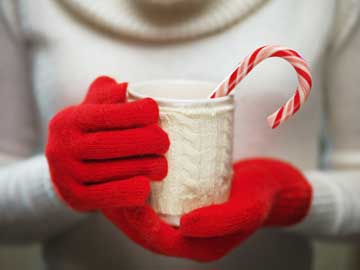Given that the trend towards going green includes household cleaning products, it’s not always easy to find products that 1) work, 2) don’t cost a fortune, and the product doesn’t get used up in less than five uses. Abu Bah has a great piece on how to clean and stay green in your cleaning products so that you can keep that home spotless and not have any environmental or health issues!
How to Clean Green (Environmentally Safe)
Cleaning the parts of your home that accumulate loads of dirt can be difficult. Often, you may need highly concentrated cleaning agents that remove grease, dirt, organic stains, dyes, or even bodily fluids in some cases. These may work great in removing tough stains from tile, cloth, wooden floors, drywall, counter tops or upholstery, but they aren’t necessarily good for the environment. If you clean outdoor areas, these agents can seep into the topsoil and damage the surrounding greenery. Even worse, they can infiltrate the water table and contaminate natural water sources. Using these cleaning agents indoors isn’t much better since the waste water will eventually end up down the drain into the sewer system. This can cause contamination of your septic tanks and of the public water utilities. If you use a natural, well-drawn plumbing source, then this could also contaminate your well. Using synthetic, chemical cleaning agents can cause many environmental problems and people seem to be unaware of natural cleaning agents that are available both from organic manufacturers as well as products that can be made from household items. Using these instead not only can prove to be more effective than synthetic agents, but their environmental impact is drastically lower than their chemical counterparts.
Store Bought Items
There are plenty of store bought products that claim to be “green” and safe for the environment, but these are often just marketing ploys trying to appeal to the ecologically-conscious consumer. There is no legal definition for terms like “natural” or “eco-safe”. Anyone can slap a label on their bottle and call it “green”. The main things to watch out for are volatile organic compounds (VOC’s) such as ethylene glycol, ethers, lye (sodium and potassium hydroxide), methylene chloride and ammonia. These VOC’s are present in many cleaning agents that claim to be “environmentally friendly”. These compounds can produce carcinogenic nitrosamines, which is known to cause cancer or emit dangerous fumes in unventilated or humid areas. If these chemical seep into the water table or your own water source, it could be disastrous when this compound breaks down. Always look at the full list of ingredients and be on the lookout for such chemical compounds like water phosphates and any synthetic fragrances that try to simulate fresh outdoor aromas. You also want to avoid any harsh solvents that are made from non-renewable petroleum-based chemicals or any kind of antibacterial agents. These can erode the body’s natural ability to fight infection. Try to avoid chemicals that can have any kind of reaction to fluoridated water(found in most public water utility systems) and can potentially release harmful fumes. There are even some chemicals that can disrupt some human hormones and cause harmful skin and respiratory reactions. Basically, any kind of store cleaners that have chemical ingredients that were produced in a laboratory, have names that have more than one syllable and can’t be proven to come from something grown from the earth is to be avoided.
The ideal store-bought cleaning agent should utilize citric acids from fruits like lemons and oranges. Another natural chemical to look out for in store-bought items is vinegar. Any item from the store that claim to be eco-friendly should have as few ingredients as possible other than water, plant based soap using vegetable fat or even animal fat (make sure it is odorless and doesn’t use any aromatic chemicals), natural oils, or even some kinds of teas.
Homemade Cleaning Products
You may want to save money and make cleaning products of your own instead of buying them from the store. If you intend on using natural, household items, there are four ingredients than you should focus on.
1. Vinegar
This is surprisingly a safe chemical found in nature. Vinegar is made by the fermentation of ethanol and acetic acid bacteria found in plants that contain sugar such as apples, sugar cane, coconuts and other naturally grown items. Best of all, vinegar doesn’t absorb into root systems, making it safe to have around plants. It can be absorbed into topsoil but is often broken down by those minerals to become safe. You can use vinegar to make all-purpose cleaner when combined with water, soap and lemon juice, laundry detergent, dish washing detergent, or floor and glass cleaner and even disinfectant spray when mixed with water, tea tree oil and lavender. Make sure to dilute whenever necessary to prevent too high of a concentration of acetic acid.
2. Citric Acid from Lemons or Oranges
Easily the most organic chemical on this list, lemon and orange juice is similar to vinegar in that while it may kill top growth in plants, it doesn’t get absorbed by tree or plant roots. You can use lemon juice to make other cleaners beside the ones listed above like furniture and floor polishers, dish washing detergent, laundry detergent, and all-purpose cleaner.
3. Baking Soda
This can be combined with other natural chemicals like vinegar and citric acid to make oven cleaner as well as laundry detergent, a deodorizer, odor absorber, carpet deodorizer, tile cleaner and cabinet freshener.
4. Natural Vegetable Oil or Animal fat Soap
Olive oil is the best vegetable oil to use when creating homemade cleaning agents, although you can use any kind of liquid vegetable-based oil. It can be used to make furniture polish or floor polish when used with lemon juice, can be added to glass cleaner to make homemade Windex and is best when combined with other natural acids for all-purpose cleaning. It’s also excellent when making homemade liquid soap or homemade dish washing detergent.
When it comes to soap, the best kind is an unscented variety made completely of animal fat. This is easily biodegradable and causes almost no environmental impact when coming into contact with plant life, topsoil and water tables. With this natural soap, you can make floor cleaner, dish washing soap or detergent, all-purpose cleaner, and laundry detergent.
When using homemade cleaning agents, make sure to dilute your ingredients to prevent any kind of damage to wooden finishes or clothing dyes. Vinegar is better and more natural than chlorine bleach, but it can still remove darker dyes in the same manner if at too high a concentration.
Abu Bah,
CEO, MaidComfy.com
About MaidComfy (https://www.maidcomfy.com/)
MaidComfy specializes in residential cleaning services in NJ. They specialize in residential home and apartment cleaning with products that are safe for family and pets. In addition, they offer a variety of different household services, including organizing, cooking, laundry, and other services that simplify home living.
For more information about MaidComfy, please visit: https://www.maidcomfy.com/
About Abu Bah
Abu Bah is the founder and CEO of MaidComfy. He was born in North Carolina but he grew up in West Africa and is now living in New Jersey where he runs his businesses. Besides running a residential cleaning service, Abu is also a web developer, blogger, internet marketer, and soccer enthusiast.
Social platforms
Facebook: https://www.facebook.com/maidcomfy
Yelp: http://www.yelp.com/biz/maidcomfy-clifton-2
Twitter: https://twitter.com/maidcomfy
Thank you to Abu Bah for this very informative article on how to go green while still getting your house and kitchen clean! Reading labels -as Bah has pointed out– is a crucial element to determining is a product is truly green and eco-friendly. Pull out a smartphone if you run across a multi-syllabic word which you can’t pronounce or easily spell to find out what it is on the fly. Inquiring minds want to know!
Stevie Wilson,
LA-Story.com
DEALS and STEALS
I am required to tell you that I am an “affiliate” with these brands. I curate deals that offer bonuses, bargains and great products –and some are very specifically for this site to feature to YOU!
The amount I make has yet to be determined that despite people going to visit the links (and it’s in the thousands every month), I have yet to have anyone buy anything from them.
Subscribe to RSS headline updates from:
Powered by FeedBurner
If you are going to feature content from LA-Story.com including images, podcasts or videos including the accompanying text, please respect copyright provisions. We require a notation of content origination (meaning credit tag), a linkback to the specific page & please email the link to stevie@la-story.com before the piece goes live.
LA-Story.com, LA-Story Recessionista, Celebrity Stylescope, Celebrity Style Slam Trademark/Copyright: KBP Inc./TNBT Inc 2007-16



